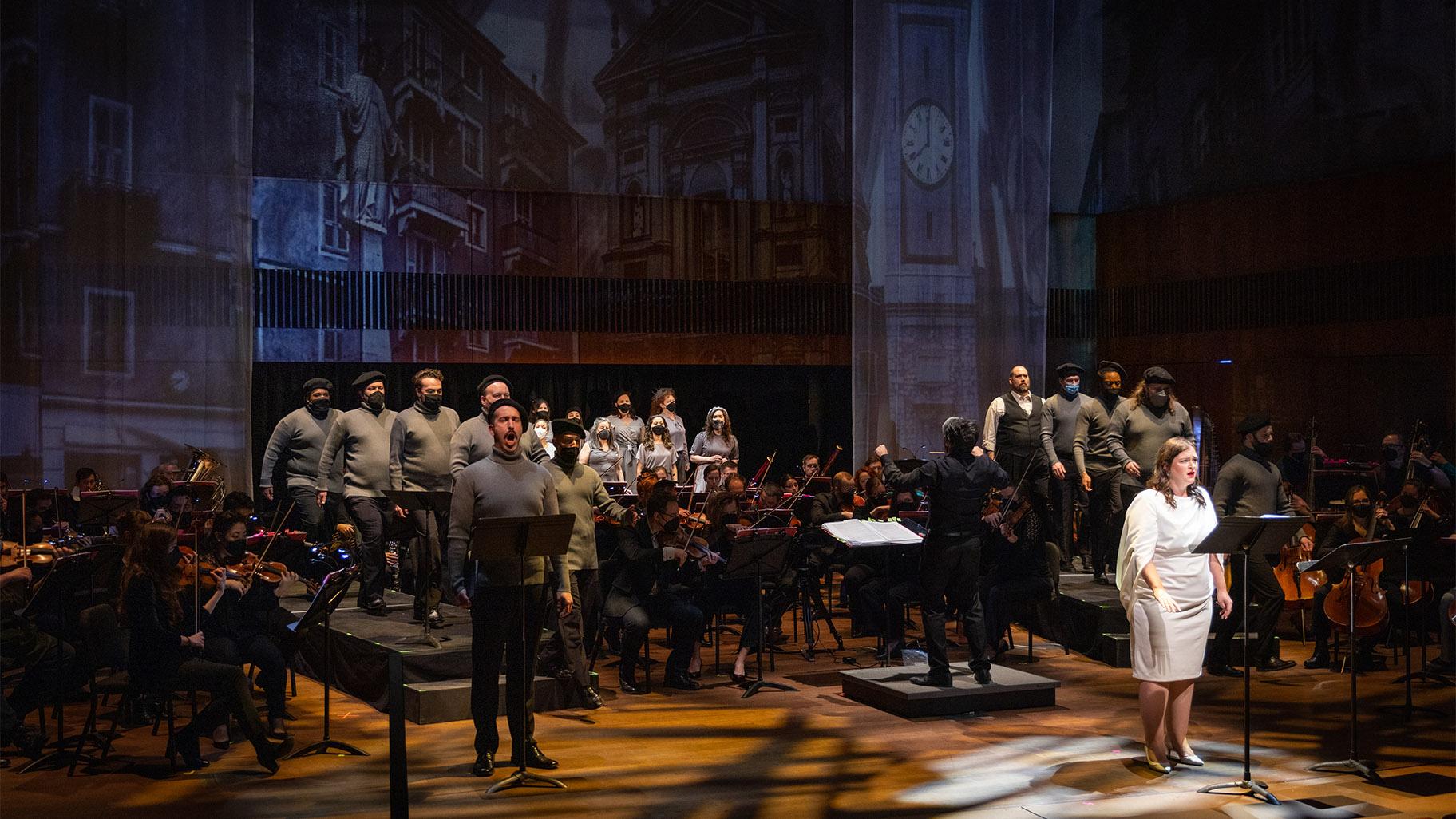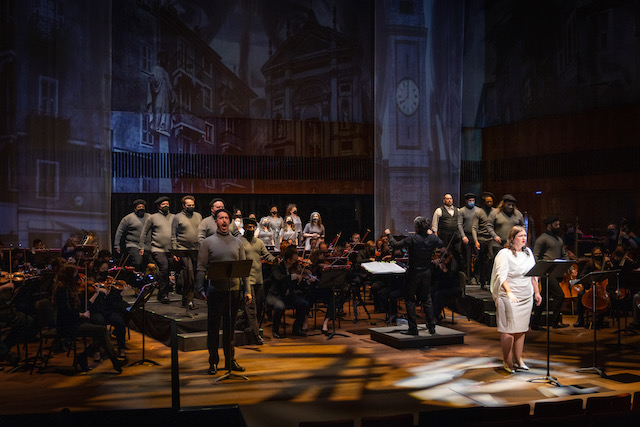Korngold Festival Celebrates ‘Die Kathrin,’ an Opera About Enduring Love
 Folks Operetta cast in “Die Kathrin” (Credit: Anthony Nguyen)
Folks Operetta cast in “Die Kathrin” (Credit: Anthony Nguyen)
True love is indestructible, and perhaps the more it is tested the stronger it becomes. That is the takeaway from “Die Kathrin,” the 1937 operetta by Erich Wolfgang Korngold (1897-1957). The Austrian-Jewish composer initially made his mark as a child prodigy. His most famous opera, “Die tote Stadt (The Dead City”), received its premiere in Germany when he was just 23, and he spent much of the 1920s reorchestrating and rearranging the operettas of Johann Strauss II.
“Die Kathrin” is now receiving its American premiere as part of the ten-day multi-faceted Korngold Festival that concludes on April 10. It is being presented as part of a collaboration between the University of Chicago and Chicago’s Folks Operetta company designed to explore the composer’s life and work. And while this was Korngold’s last opera, it was by no means the end of his career. In a great stroke of luck and ideal timing, he was able to escape the fate of many of his contemporaries – Jewish composers murdered during the Holocaust. And he very soon found fame and fortune in Hollywood where he supplied the music for 16 films (including “The Adventures of Robin Hood,” “Sea Hawk” and “Of Human Bondage”). He was heralded as a “founder of film music.”
“Die Kathrin,” with a libretto by Ernst Decsey (revised by Korngold’s wife, Luzi, in a futile attempt to appease Nazi censors), is a story about love at first sight, the trials and tribulations two young lovers must endure during their years of separation, and, finally, the great rejoicing that comes with a happy ending. Its production here is the most grand-scale effort undertaken by Folks Operetta, a company that, since its founding in 2006, has been devoted to the revival of Viennese and American operettas.
Gathered on the stage of The Reva and David Logan Center’s Performance Hall this past Thursday evening for a semi-staged, concert-style production directed by Elizabeth Margolius, were a dozen superb singer/actors and an impressive young orchestra led by the impeccable conductor, Anthony Barrese (artistic director of Opera Southwest). Together they captured the lushly romantic, character-driven Korngold score that was sung in German (and bits of French), with English supertitles unspooling over a back wall animated by the colorful projection design of Rasean Davonte Johnson.
At the center of the opera is Kathrin (soprano Ann Toomey), a young Swiss working girl who meets Francois (tenor Corey Bix), near a movie house where girls are only permitted to enter if they have a male escort. There is a bit of a language barrier between them (she speaks German and he speaks French), but there is no lack of passion. Yet almost immediately after they fall in love Francois must head out on compulsory military duty in Algiers. And while he promises to return to her as soon as possible she is devastated, and it is not long before she realizes she is pregnant.
Determined to find Francois, the rather naive and unworldly Kathrin sets out on her own for the first time. Although she learns he is working in a nightclub in Marseille, she is prevented from seeing him by the club’s lecherous owner, Malignac (baritone Mark Delavan), who wants Kathrin for himself. This ignites the rage of his current lover, Chou Chou (coloratura soprano Stacey Tappan). It is Chou Chou who goes on to murder Malignac, but it is Francois who ends up serving a prison sentence for the crime.
Ultimately, Francois and Kathrin are reunited and join in a rapturous duet. But in many ways, the most emotionally powerful moment in the opera comes when the couple’s five-year-old son, “little Francois” (beautifully played by Lydia Costello), meets his father for the very first time.
The remaining performance of “Die Kathrin” is Saturday, April 9 at 7:30 p.m. at the Logan Center of the University of Chicago, 915 E. 60th St.
For tickets visit folksoperetta.org or phone (773) 702.ARTS.
For details about the Korngold Festival, which runs through April 10, visit korngoldfestival.org.
Follow Hedy Weiss on Twitter: @HedyWeissCritic

